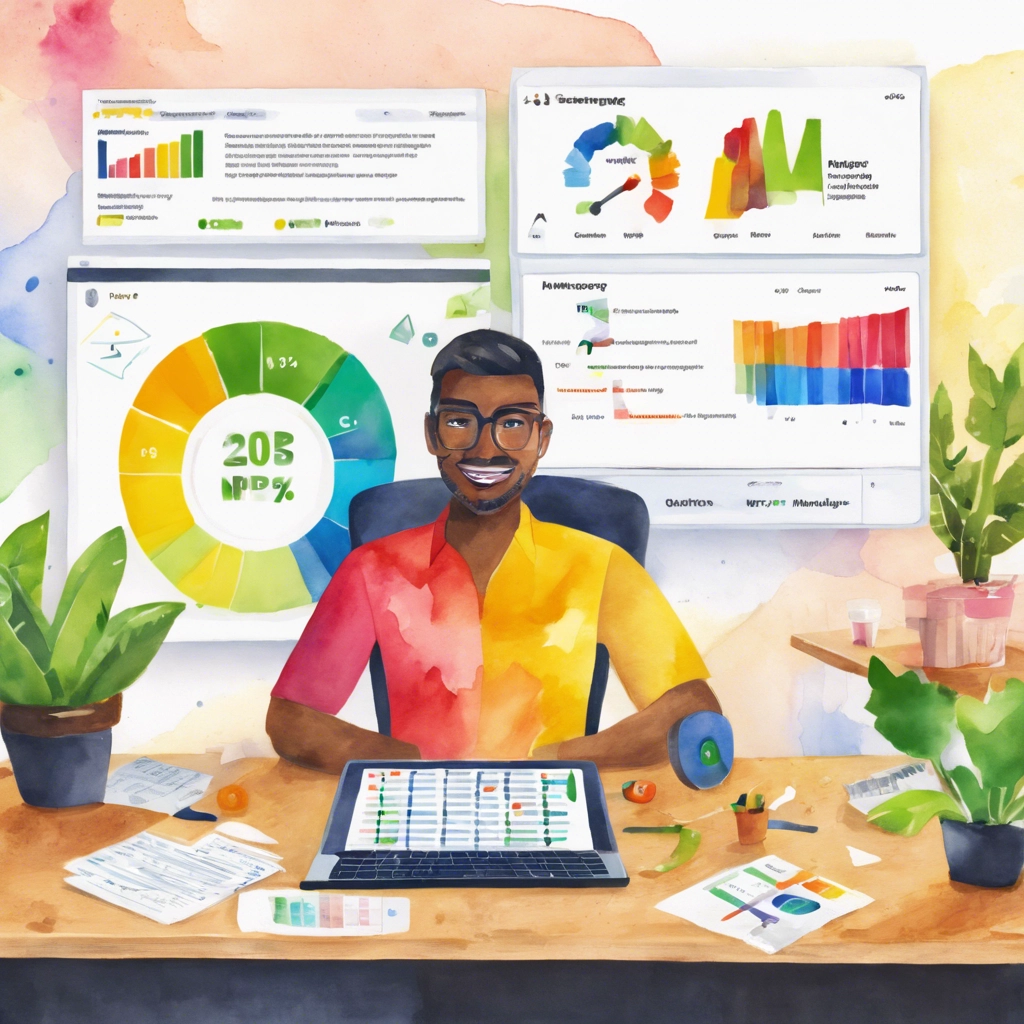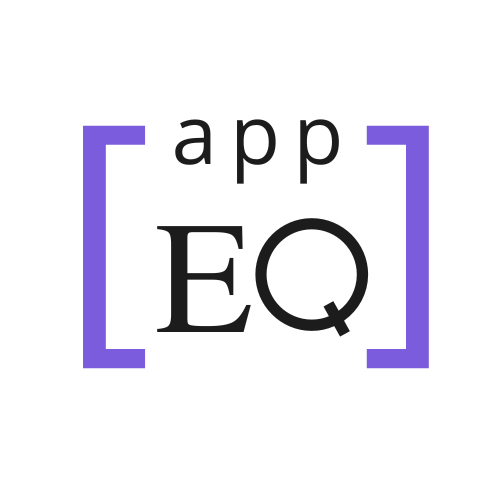Customer Success Software Alternatives to Consider Before Making Your Decision
| Parameters | Why it matters? |
| Integration Capabilities | Why it matters: The platform should integrate seamlessly with your existing tech stack, including CRM systems (e.g., Salesforce), product analytics tools (e.g., Mixpanel), billing systems, and communication platforms. Key Considerations: Look for API support, third-party app integrations, and native connectors that fit your ecosystem. Are they open and flexible for custom integrations? |
| Data Centralization and Insights | Why it matters: A good CSP should consolidate data from multiple sources into a single, comprehensive view, providing real-time insights on customer health, product usage, and engagement. Key Considerations: Data visualization, dashboards, and Account 360 views that give actionable insights at a glance. |
| Automation and Workflow Management | Why it matters: Automating tasks like renewal alerts, health checks, and follow-up emails saves time and reduces human error, helping teams stay on top of customer engagements. Key Considerations: Look for rule-based automation, customizable triggers, and automated workflows that fit your processes. |
| Customer Segmentation and Health Scoring | Why it matters: Segmenting customers based on behavior, demographics, or account value helps target interventions and tailor engagement strategies. Health scoring predicts churn risks and identifies opportunities. Key Considerations: Flexible segmentation, customizable health scores, and predictive analytics features. |
| Reporting and Analytics | Why it matters: You need to track key metrics like retention rates, NPS scores, and churn forecasts to measure the effectiveness of your Customer Success initiatives and adjust strategies accordingly. Key Considerations: Customizable reports, cohort analysis, trend analysis, and ROI tracking for QBR/MBR presentations. |
| Ease of Use and User Experience | Why it matters: A platform that’s difficult to navigate can lead to low adoption and inefficiency. Intuitive design, ease of onboarding, and minimal training requirements are crucial for team success. Key Considerations: User-friendly interface, drag-and-drop features, and a short learning curve. |
| Scalability and Flexibility | Why it matters: As your company grows, your CSP should be able to scale with you, adapting to new processes, larger teams, and increased data volumes. Key Considerations: Flexible pricing models, ability to add new users or features, and support for evolving customer success needs. |
| Customer Support and Onboarding | Why it matters: High-quality, responsive support and an easy onboarding process are essential for a smooth transition and ensuring you get the most out of the platform. Key Considerations: Availability of support (24/7, chat, email), knowledge base, and dedicated customer success managers. |
If you are considering Velaris, you may also want to investigate similar alternatives or competitors to find the best solution. Customer Success Software is a widely used technology, and many people are seeking user friendly, top rated software solutions with playbooks, custom triggers, and surveys. Other important factors to consider when researching alternatives to Velaris include user experience and task management.
* inputs from user reviews
When selecting the right Customer Success software, it’s crucial to evaluate Gainsight and Velaris, as they represent two leading solutions tailored to different organizational needs. Gainsight is a robust, enterprise-grade platform renowned for its advanced analytics, comprehensive customer health scoring, and powerful automation features. It’s particularly well-suited for larger organizations with intricate workflows that require deep visibility into customer data and scalable processes. Gainsight also provides extensive integrations with CRMs, support platforms, and product analytics tools, making it a one-stop solution for managing customer lifecycles efficiently.
On the other hand, Velaris offers a more agile and flexible approach, focusing on real-time customer engagement and success management. Its modular design allows organizations to customize their experience based on specific needs, making it ideal for businesses of varying sizes. Velaris’s emphasis on customer journey mapping and proactive engagement helps teams monitor customer health and identify risks effectively, facilitating timely interventions to drive retention and growth.
While Gainsight excels in providing comprehensive analytics and deep insights, Velaris’s strength lies in its user-friendly interface and quicker implementation. This makes Velaris particularly appealing for small to mid-sized businesses or teams seeking a streamlined solution that can deliver immediate value without extensive setup. However, Gainsight’s complexity can sometimes overwhelm teams that require a more straightforward tool for customer success management.
By comparing Gainsight’s powerful, enterprise-level capabilities with Velaris’s adaptable and user-centric approach, businesses can make a more informed decision that aligns with their size, objectives, and customer success strategies. This evaluation ensures they select a platform that effectively drives customer retention, fosters engagement, and supports both current and future growth.

Comprehensive Customer Health Scoring: Gainsight’s customer health scoring is praised for providing a detailed view of customer engagement. This feature enables teams to proactively identify at-risk accounts and opportunities for upselling or cross-selling.
Robust Automation and Workflow Management: Users love the ability to automate workflows, tasks, and alerts, which reduces manual effort and streamlines customer success operations. This feature enhances productivity, allowing teams to focus more on strategic work.
Integration with Other Platforms: Gainsight integrates seamlessly with major platforms like Salesforce and Zendesk, allowing teams to pull data from various systems into one centralized place. This offers a holistic view of customer accounts and activities, improving decision-making.
Complex Setup and Customization: Gainsight is powerful, but many users report that the initial setup can be time-consuming and requires a steep learning curve. Customizing it to fit specific workflows may need significant effort, which can be challenging for smaller teams.
Pricing: Gainsight tends to be on the higher end of the pricing spectrum, which might not be cost-effective for smaller businesses or teams with limited budgets.
Performance Issues: Some users have reported that Gainsight can be slow or experience performance issues when handling large datasets or multiple integrations, which affects efficiency during daily operations.
When selecting the right Customer Success software, it’s essential to evaluate AppEQ and Velaris, as they cater to different organizational needs and customer success strategies. AppEQ offers a unique in-app workspace that enhances collaboration across teams by embedding insights and playbooks directly within existing CRM systems. Its widget-based, flexible design allows teams to focus on high-priority accounts, streamlining workflows without the complexities of adopting a new platform. AppEQ’s seamless integration capabilities ensure that data flows effortlessly between systems, providing a comprehensive view of customer interactions and insights that drive retention and upsell opportunities.
In contrast, Velaris is well-known for its focus on customer engagement and automation. It provides a robust framework for managing customer journeys and is particularly strong in delivering real-time insights that help teams monitor customer health and engagement levels. Velaris’s modular approach allows organizations to customize their implementation based on specific needs, making it suitable for various team sizes and structures. Additionally, its features for automated workflows and customer health scoring enable teams to proactively manage relationships and mitigate churn.
While AppEQ excels in its ability to integrate seamlessly with existing CRM systems and provide a flexible, collaborative workspace, Velaris stands out with its emphasis on customer engagement and automation capabilities. However, some users have noted that Velaris’s complex interface may require a steeper learning curve, which could hinder rapid adoption for smaller teams.
By comparing AppEQ’s innovative, integrated approach with Velaris’s focus on automation and customer engagement, businesses can make a more informed decision that aligns with their specific goals and customer success strategies. This evaluation helps ensure they choose a platform that enhances customer retention, fosters engagement, and supports their growth objectives.
Learn more about AppEQ
Seamless Integration: AppEQ.ai allows for easy integration with a wide range of enterprise applications, which helps in consolidating data from different sources into a single, accessible workspace. This integration supports real-time insights, enabling teams to make informed decisions quickly .
Composable Workspace: The platform offers a highly customizable in-app workspace that adapts to the specific needs of customer-facing teams. Users appreciate the ability to tailor their experience, which can enhance productivity by reducing the time spent navigating between multiple applications .
Strong Customer Support:Users have noted the exceptional support provided by the AppEQ.ai team. This assistance can be crucial for organizations during implementation and beyond, ensuring that teams can maximize the platform's capabilities effectively.
Learning Curve: Some users have mentioned that the platform can have a steep learning curve, especially for those who are not technically inclined. The initial setup and configuration might require more time and effort to fully understand and utilize all features effectively, even though they are highly customer centric and will handhold to make sure the features are effectively utilized based on your business requirements ..
Customization Challenges: While AppEQ.ai offers high customization, some users have noted that the process can be complex. Customizing the platform to fit specific needs may require feature knowledge, which could be a barrier for some teams.
User Interface: A few reviews point out that the user interface could be more intuitive. Users have suggested that improvements in the design and navigation could enhance the overall user experience, making it easier to find and utilize features
When selecting the right Customer Success software, it's essential to compare Totango and Velaris, as both platforms cater to different business needs with distinct advantages. Totango is known for its scalability and ability to serve enterprises with complex customer success operations. It offers powerful segmentation and automation capabilities, allowing businesses to track customer health, define success goals, and automate playbooks based on customer data. Its strength lies in its modular "SuccessBLOCs," which are designed to cater to specific customer lifecycle stages like onboarding, retention, or expansion. Totango’s real-time data visibility across various touchpoints enables proactive management of customer relationships, making it a solid choice for businesses that require a comprehensive, scalable solution.
On the other hand, Velaris provides a more intuitive and user-friendly experience, with a focus on simplicity and flexibility. Its lightweight design allows teams to onboard quickly and derive value faster, making it particularly appealing for small to mid-sized businesses. Velaris is ideal for companies seeking a straightforward solution to manage customer success without the complexity of enterprise-grade tools. Its customizable interface and flexibility in managing smaller-scale operations give it an edge for teams that prioritize agility and ease of use.
While Totango excels in providing enterprise-level features and scalability for growing businesses, Velaris offers a simpler, more focused approach that caters to organizations looking for an efficient yet effective customer success platform. By comparing Totango’s advanced segmentation and automation capabilities with Velaris’s user-friendly and flexible interface, businesses can make an informed decision based on their size, goals, and need for scalability.
Scalability: Totango is praised for being highly scalable, making it suitable for both mid-sized and large enterprises. It allows companies to manage customer success processes at scale by using its modular "SuccessBLOCs" structure, which adapts to various stages of the customer journey.
Automation and Playbooks: Many users appreciate Totango's robust automation capabilities. It allows customer success teams to automate workflows and playbooks, such as triggering tasks and follow-ups based on specific customer behaviors or lifecycle stages. This helps teams act proactively.
SuccessBLOCs Customization: The ability to configure Totango's SuccessBLOCs for different use cases, such as onboarding, renewals, or upselling, has been cited as a major advantage. This makes it adaptable to various customer success strategies.
Steep Learning Curve: Despite being user-friendly in many ways, some users have reported that the learning curve can be steep when first implementing Totango. Setting up advanced features like playbooks or complex workflows can require significant time and effort.
Limited Customization for Reports: A recurring complaint from users is the limited flexibility in reporting. Some users have mentioned that creating custom reports or modifying existing templates isn't as intuitive or as flexible as they would like.
Integrations : While Totango does integrate with many tools, some users have found limitations with certain integrations, especially if their tech stack includes less common or highly customized software. This can hinder seamless data flow between applications.
When selecting the right Customer Success software, it's important to evaluate both ChurnZero and Velaris, as they cater to different organizational needs with distinct advantages. ChurnZero is known for its robust focus on customer retention, offering powerful automation features, real-time customer health scoring, and journey mapping tools. This platform is ideal for teams that want to proactively manage customer churn and engagement by utilizing in-depth insights, behavioral data, and automated workflows. ChurnZero's focus on in-app messaging and engagement also makes it suitable for SaaS businesses looking to enhance customer touchpoints and communication.
Velaris, on the other hand, offers a more streamlined and intuitive platform with flexibility and ease of use at its core. It’s well-suited for small to mid-sized organizations that need a simple, adaptable solution without the complexities of larger platforms. With its clear user interface and faster onboarding process, Velaris appeals to teams looking for a lighter customer success tool that still delivers essential features for managing customer relationships.
However, businesses with more complex customer success operations may find that Velaris’s limitations in areas such as automation and advanced analytics are restrictive compared to ChurnZero. While ChurnZero provides a more comprehensive toolset for tracking and improving customer engagement, Velaris’s ease of use and adaptability offer quicker time-to-value for teams that prioritize simplicity.
By comparing ChurnZero’s advanced automation and customer health tracking capabilities with Velaris’s user-friendly and flexible design, organizations can choose a platform that aligns with their customer success strategy, team size, and business complexity. This thoughtful evaluation will help ensure the platform they select supports growth, drives retention, and meets their long-term success goals.
Advanced Customer Insights: ChurnZero provides deep visibility into customer usage patterns, allowing Customer Success Managers (CSMs) to easily monitor activity and identify potential churn risks. This level of insight helps teams stay proactive in addressing customer needs.
Task Management and Automation: ChurnZero's task management feature significantly improves productivity by allowing teams to assign, track, and manage tasks effectively. The automation of customer engagement workflows, like sending automated emails, is also highly appreciated.
Excellent Customer Support: Users consistently highlight the quality of ChurnZero’s customer support, which is responsive, knowledgeable, and goes the extra mile to ensure successful implementation and ongoing use of the platform
Steep Learning Curve: Some users report that ChurnZero’s extensive features and customization options can make onboarding difficult, particularly for new users. It may take time to fully grasp the system's functionalities, especially for teams unfamiliar with Customer Success platforms
Interface Usability: A few users have noted that the interface could be more intuitive. They mention that the layout and navigation can sometimes feel clunky or require multiple clicks to perform simple tasks, which can slow down productivity
Reporting Limitations: While ChurnZero offers valuable insights, some users have mentioned that its reporting capabilities can be limited or complex. They point out challenges in creating custom reports and suggest improvements to make reporting more flexible and user-friendly
When selecting the right Customer Success software, it's important to consider both ClientSuccess and Velaris, as they serve different organizational needs. ClientSuccess offers a highly intuitive and user-friendly platform, focusing on helping customer success teams simplify processes and drive measurable results. Known for its comprehensive customer health scoring, task automation, and client lifecycle management, ClientSuccess excels in fostering better customer relationships and improving retention metrics. Its strong focus on providing actionable insights through an easy-to-use interface makes it an ideal choice for companies that want simplicity without sacrificing effectiveness.
On the other hand, Velaris is known for its flexibility and adaptability, particularly for businesses looking for customizable solutions that can scale with them. Velaris's modern, user-friendly interface and quick onboarding process make it appealing to teams that prioritize agility and need to adopt new tools quickly. However, Velaris may lack some of the deeper, enterprise-level features available in ClientSuccess, such as advanced customer segmentation and in-depth reporting capabilities.
By evaluating both ClientSuccess and Velaris, businesses can assess which platform aligns better with their customer success strategy, taking into consideration factors like ease of use, scalability, and the depth of features required to manage customer relationships effectively.
Ease of Use: Many users appreciate the intuitive and user-friendly interface, which makes it easy for customer success teams to adopt the tool quickly without extensive training. The clean UI allows teams to get up to speed fast.
Customer Health Scoring: Users frequently mention the effectiveness of ClientSuccess in tracking customer health through customizable metrics. This feature provides clear visibility into account health, allowing teams to be proactive in managing customer relationships and identifying at-risk accounts.
Customer Support: Reviewers often highlight the exceptional support provided by the ClientSuccess team. Users feel well-supported during onboarding and through ongoing assistance, praising the team for being responsive and knowledgeable.
Limited Reporting Capabilities : One of the most common critiques is the lack of advanced or customizable reporting features. Many users have mentioned that while the built-in reports are useful, they often need more detailed or customizable insights that are not easily accessible.
Missing Key Integrations: A few reviews point out that ClientSuccess lacks integration with certain tools that are key for customer success teams, particularly for more specific or niche third-party platforms.
Automation Limitations: A Users also note that the platform’s automation capabilities can be limited compared to more robust customer success tools like Gainsight, making it less suitable for organizations with highly complex workflows.
If you’re looking to elevate your Customer Success workflows without the hassle of implementing a new platform, AppEQ.ai could be the solution you’ve been searching for. Designed specifically for organizations already using a CRM, AppEQ enhances your existing system with powerful embedded insights, customizable playbooks, and proactive early warning alerts.
Our unique widget-based, in-app flexible system fosters seamless collaboration across teams, ensuring that your CRM remains the single source of truth while simplifying integration with your current tools. This means you can drive better customer engagement and retention without the complexity and cost associated with switching platforms.
Ultimately, the choice depends on the size of your team, budget, and specific Customer Success requirements.
Schedule a personalized demo today and see how AppEQ.ai can empower your team!

Hi, I am Archana
Ready to take the next step? Request a personalized demo & consultation of AppEQ and explore how it can help your enterprise unlock customer insights and take data-driven actions.
Get a real-time view of Accounts, Opportunities, tickets and more, directly in the apps that you already use using AppEQ Smart Dashboard.
Align revenue data with product engagement, support tickets or any other metrics for more strategic account management.
Use data-driven insights to preempt churn, boost adoption, and unlock cross-sell/upsell opportunities.
Get quick answers to common questions about AppEQ’s features, integrations, and benefits.
AppEQ ensures data privacy and security through encryption. You can visit our trust to learn more about our security measures. https://trust.appeq.ai/
Yes, you can customize the data fields and metrics you want to sync, ensuring that only relevant data is shared between the platforms.
AppEQ allows you to customise metrics that you want to see on your smart dashboard. It also provides pre-configured templates that you can utilise to quickly view industry standard insights and metrics.

Get NPS and Customer Survey to understand customer sentiments

Get Helpdesk data to understand open issues and queries from your accounts

Understand invoices and payment status easily within the CRM

Combine Adhoc data with your CRM
Explore More Integrations
{{mpg_interlinking}}


Exclusive discount – valid only this month! ⏳
Your Code:
Use this code for 20% off, but hurry – offer expires soon!
Claim Your Discount Now* pls mention your discount code during the demo request